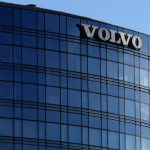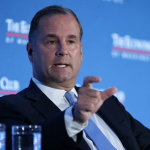
gen z wants a good balance between work and life and a stable job
New research by the Graduate Management Admission Council (GMAC) shows that work-life balance and job stability are two of the most important things for Gen Z in their future careers.
Gen Z in the GME Pipeline is a report that looks at the career goals and hopes of Gen Z students who want to take business education courses. As Gen Z starts to take over the talent pipeline for businesses, it has become more important to study and understand what they want and need.
The results show how important success is to Gen Z, not just in their jobs but also in their personal lives. Work-life balance is very important to them, not just during their time in management school but also in their future careers. They still want to make money, but they also want to feel fulfilled, happy, and stable.
On the one hand, financial independence is linked to stability. Respondents said they wanted to build a strong foundation for their futures from the start of their careers. But stability is also an important trait for Gen Z when they look at the sector, industry, and jobs they want to get into. This is a lasting effect of the COVID pandemic.
Finance and accounting are seen as stable careers, but on average, Gen Z finds tech to be less stable than millennials and is less likely to want to work in it. This seems to be because tech companies like Alphabet, Meta, and Amazon have been letting go of a lot of employees at once. This is made worse by the fact that tech company stocks and shares are very volatile.
The report also found that Gen Z is more likely to want to work together and include everyone. They hope to have careers in the future where they can work on teams with people from different countries and cultures. They also want to work in places that care about climate change and social injustice, because they want to do good work.
Keep Reading
On average, the people who answered were hopeful about their own futures but worried about the state of the world and how it would affect their lives. The report finds that Gen Z’s goals and career goals have a “emotional undercurrent.” For example, many respondents said they wanted to feel proud of their work. Another person said, “When I talk to my friends, most of the time we talk about our future jobs. Do you care if your future job is something you like, if it will make you stressed, or if it will make you happy?”
Gen Z is also more likely than millennials to want to see social action from their employers, whether it’s about sustainability, climate change, or being open to everyone.
Gen Z is a very socially aware and aware generation with ambitious plans for the future and worries about the future of their community and the world. This is what the regional director of GMAC in Europe has said.
And they want their employers and teachers to meet their needs. From customized courses and modules in college to hybrid jobs in the workplace, Gen Z wants their education and work to really reflect their interests and help them reach their personal goals. By doing this research, we can not only learn more about this, but we can also compare it to other times.
GMAC did qualitative research between 2022 and 2023 that is used in the report.
GMAC was started in 1953 as an international group of the best graduate business schools. The group’s goal is to make it easier for businesses to get and share information about graduate management education and job trends.
The results show how businesses expectations are changing because more and more of their employees will come from the generation of students in this report.
Gen Z and The Report:
- Gen Z is more likely than millennials to want to work for companies that offer flexible work arrangements.
- Gen Z is also more likely than millennials to want to work for companies that provide good benefits, such as health insurance, retirement savings plans, and paid time off.
- Gen Z is more likely than millennials to want to work for companies that have a positive and supportive work environment.
- Businesses that can adapt their offerings and cultures to attract and retain Gen Z workers will be well-positioned to succeed in the future.









